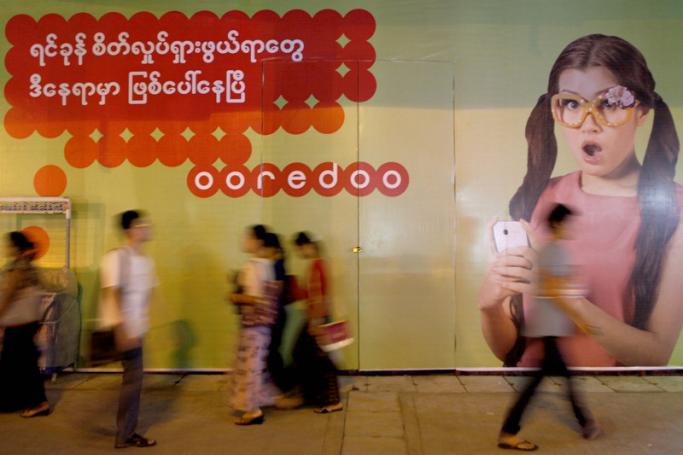Campaign group Free Expression Myanmar (FEM) has urged telecoms company Ooredoo to conduct increased due diligence before deciding whether to sell or who to sell the company to, so that it can ensure the best protection for employees' and customers' digital rights.
Ooredoo, the last foreign mobile telecoms operator remaining in Myanmar, has reportedly told the regulator that it is selling up. Although Ooredoo, according to FEM does not have a good global human rights record, it is the mobile telecom operator most independent from Myanmar’s military after the exit of Telenor.
Telecom operators like Ooredoo enable communication and hold large amounts of user data. The best telecom businesses help protect the rights to freedom of expression and privacy. The worst seriously harm their users’ rights by facilitating internet shutdowns and website blocking, as well as enabling mass surveillance and interception.
In Myanmar’s harsh context, even the smallest level of independence is a limited safeguard against the worst excesses of the military’s digital rights violations. Although all mobile telecom operators receive the same regulatory orders from the military, more independent operators can use greater discretion in how those orders are implemented.
According to FEM, given that military orders tend to be vague, such discretion can and has led to independent operators implementing them in ways less harmful to digital rights. For example, by interpreting a vague order in a narrower way and choosing a technological solution that has the least bad effect.
Ooredoo’s independence also encourages competition, encouraging all telecom businesses to make commitments to their users, including on access and potentially on privacy. Ooredoo has also intermittently engaged with civil society in the past, such as at the Myanmar Digital Rights Forum, co-organised by FEM.
FEM is urging Ooredoo to conform to international human rights standards if it intends to exit Myanmar. International standards state that businesses should avoid causing or contributing to adverse human rights impacts and try to prevent or mitigate those impacts when exiting.
In particular, according to the UN Guiding Principles, Ooredoo should carry out human rights due diligence before selling to identify, prevent, mitigate, and account for any adverse actual or potential human rights impacts. As Myanmar is a conflict area, the UN recommends even more “heightened” due diligence than normal. This should include due diligence of any potential buyer, as well as adequate consultation with local and international civil society.
FEM urges Ooredoo to make sure any buyer is qualified, able to maintain and improve current user service, committed to operating in accordance with international standards, and willing to participate in collective efforts to reform Myanmar’s legal framework to protect human rights.
FEM also urges Ooredoo to learn from the mistakes made by the Norwegian mobile telecoms business, Telenor, in its controversial sale earlier this year.
Telenor’s global reputation among governments, civil society, and the business community has been severely damaged because of its decision-making that ultimately led to it handing over its employees and private personal data on millions of users, including journalists, human rights defenders, and members of the political opposition, to Shwe Byain Phyu, a Myanmar company with close links to the military.
The damage done to Telenor’s reputation has not stopped with its sale. Telenor was aware in advance of the potential human rights impact of handing over its employees and user data to a military ally and therefore could be held complicit in any future human rights violations and resulting legal claims.












